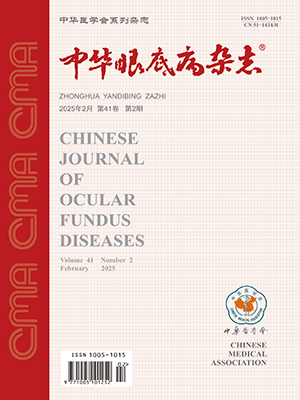| 1. |
Jarius S, Paul F, Weinshenker BG, et al. Neuromyelitis optica[J]. Nat Rev Dis Primers, 2020, 6(1): 85. DOI: 10.1038/s41572-020-0214-9.
|
| 2. |
Lennon VA, Wingerchuk DM, Kryzer TJ, et al. A serum autoantibody marker of neuromyelitis optica: distinction from multiple sclerosis[J]. Lancet, 2004, 364(9451): 2106-2112. DOI: 10.1016/S0140-6736(04)17551-X.
|
| 3. |
Wang Z, Yan Y. Immunopathogenesis in myasthenia gravis and neuromyelitis optica[J/OL]. Front Immunol, 2017, 8: 1785[2017-12-12]. https://pubmed.ncbi.nlm.nih.gov/29312313/. DOI: 10.3389/fimmu.2017.01785.
|
| 4. |
Gong J, Qiu W, Zeng Q, et al. Lack of short-chain fatty acids and overgrowth of opportunistic pathogens define dysbiosis of neuromyelitis optica spectrum disorders: a Chinese pilot study[J]. Mult Scler, 2019, 25(9): 1316-1325. DOI: 10.1177/1352458518790396.
|
| 5. |
Lynch SV, Pedersen O. The human intestinal microbiome in health and disease[J]. N Engl J Med, 2016, 375(24): 2369-2379. DOI: 10.1056/NEJMra1600266.
|
| 6. |
McPherson AC, Pandey SP, Bender MJ, et al. Systemic immunoregulatory consequences of gut commensal translocation[J]. Trends Immunol, 2021, 42(2): 137-150. DOI: 10.1016/j.it.2020.12.005.
|
| 7. |
Cho I, Blaser MJ. The human microbiome: at the interface of health and disease[J]. Nat Rev Genet, 2012, 13(4): 260-270. DOI: 10.1038/nrg3182.
|
| 8. |
Berer K, Gerdes LA, Cekanaviciute E, et al. Gut microbiota from multiple sclerosis patients enables spontaneous autoimmune encephalomyelitis in mice[J]. Proc Natl Acad Sci USA, 2017, 114(40): 10719-10724. DOI: 10.1073/pnas.1711233114.
|
| 9. |
Cree BA, Spencer CM, Varrin-Doyer M, et al. Gut microbiome analysis in neuromyelitis optica reveals overabundance of clostridium perfringens[J]. Ann Neurol, 2016, 80(3): 443-447. DOI: 10.1002/ana.24718.
|
| 10. |
Shi Z, Qiu Y, Wang J, et al. Dysbiosis of gut microbiota in patients with neuromyelitis optica spectrum disorders: a cross sectional study[J/OL]. J Neuroimmunol, 2020, 339: 577126[2020-02-15]. https://pubmed.ncbi.nlm.nih.gov/31841737/. DOI: 10.1016/j.jneuroim.2019.577126.
|
| 11. |
Zhang J, Xu YF, Wu L, et al. Characteristic of gut microbiota in southeastern Chinese patients with neuromyelitis optica spectrum disorders[J/OL]. Mult Scler Relat Disord, 2020, 44: 102217[2020-05-26]. https://pubmed.ncbi.nlm.nih.gov/32534438/. DOI: 10.1016/j.msard.2020.102217.
|
| 12. |
Pandit L, Cox LM, Malli C, et al. Clostridium bolteae is elevated in neuromyelitis optica spectrum disorder in India and shares sequence similarity with AQP4[J/OL]. Neurol Neuroimmunol Neuroinflamm, 2020, 8(1): e907[2020-11-04]. https://pubmed.ncbi.nlm.nih.gov/33148687/. DOI: 10.1212/NXI.0000000000000907.
|
| 13. |
Höftberger R, Guo Y, Flanagan EP, et al. The pathology of central nervous system inflammatory demyelinating disease accompanying myelin oligodendrocyte glycoprotein autoantibody[J]. Acta Neuropathol, 2020, 139(5): 875-892. DOI: 10.1007/s00401-020-02132-y.
|
| 14. |
Cui C, Tan S, Tao L, et al. Intestinal barrier breakdown and mucosal microbiota disturbance in neuromyelitis optical spectrum disorders[J/OL]. Front Immunol, 2020, 11: 2101[2020-09-02]. https://pubmed.ncbi.nlm.nih.gov/32983166/. DOI: 10.3389/fimmu.2020.02101.
|
| 15. |
Liu J, Mori M, Sugimoto K, et al. Peripheral blood helper T cell profiles and their clinical relevance in MOG-IgG-associated and AQP4-IgG-associated disorders and MS[J]. J Neurol Neurosurg Psychiatry, 2020, 91(2): 132-139. DOI: 10.1136/jnnp-2019-321988.
|
| 16. |
Wang Y, Yin Y, Chen X, et al. Induction of intestinal Th17 cells by flagellins from segmented filamentous bacteria[J/OL]. Front Immunol, 2019, 10: 2750[2019-11-22]. https://pubmed.ncbi.nlm.nih.gov/31824516/. DOI: 10.3389/fimmu.2019.02750.
|
| 17. |
Atarashi K, Tanoue T, Oshima K, et al. Treg induction by a rationally selected mixture of Clostridia strains from the human microbiota[J]. Nature, 2013, 500(7461): 232-236. DOI: 10.1038/nature12331.
|
| 18. |
Geva-Zatorsky N, Sefik E, Kua L, et al. Mining the human gut microbiota for immunomodulatory organisms[J]. Cell, 2017, 168(5): 928-943. DOI: 10.1016/j.cell.2017.01.022.
|
| 19. |
Chen D, Qiu YB, Gao ZQ, et al. Sodium propionate attenuates the lipopolysaccharide-induced epithelial-mesenchymal transition via the PI3K/Akt/mTOR signaling pathway[J]. J Agric Food Chem, 2020, 68(24): 6554-6563. DOI: 10.1021/acs.jafc.0c01302.
|
| 20. |
Mukherjee A, Lordan C, Ross RP, et al. Gut microbes from the phylogenetically diverse genus Eubacterium and their various contributions to gut health[J/OL]. Gut Microbes, 2020, 12(1): 1802866[2020-11-09]. https://pubmed.ncbi.nlm.nih.gov/32835590/. DOI: 10.1080/19490976.2020.1802866.
|
| 21. |
Huang J, Wang L, Dahiya S, et al. Histone/protein deacetylase 11 targeting promotes Foxp3+ Treg function[J/OL]. Sci Rep, 2017, 7(1): 8626[2017-08-17]. https://pubmed.ncbi.nlm.nih.gov/28819166/. DOI: 10.1038/s41598-017-09211-3.
|




